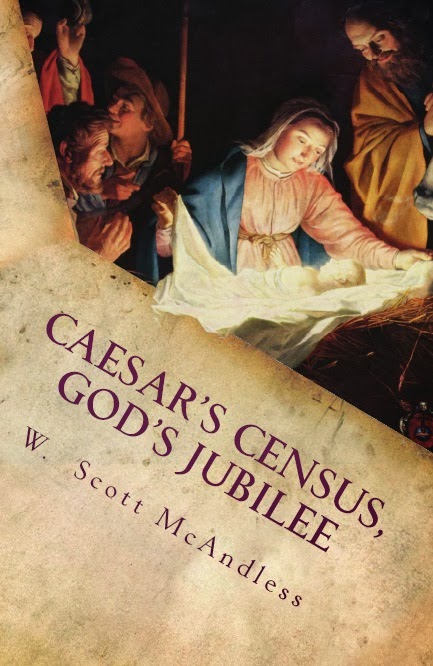Lately I have been doing a lot of reflection on the genealogy of Jesus that is offered in the first chapter of the Gospel of Matthew. (This is part preparation for a series of sermons in November and part preparation for a book I hope to write about Matthew's nativity story.)
It has long been noted that, in this genealogy, Matthew names four woman apart from Mary, the mother of Jesus. These women are: Tamar, Rahab, Ruth and Bathsheba. (Bathsheba is not actually named but referred to as "the wife of Uriah.) People have long puzzled over the naming of these women as, in ancient Mediterranean society, women were considered to be utterly unimportant in all kinds of ways and so were never mentioned in genealogies. I don't know why Matthew felt he needed to name them but I suspect that it may have something to do with the social scandals that surrounded each of these women in the Old Testament traditions.
These days, I am particularly noticing the fact that the Bible identifies half of these women, Tamar and Rahab, as prostitutes.
Prostitution is on my mind because of a new law being proposed. In 2012, the Ontario Court of Appeal struck down the existing laws on prostitution, not because it felt (or because Canadians felt) that prostitution was fine and dandy but because the existing laws infringed the rights of those working in the sex trade to security of the person.
The government has now proposed a new law to replace the law that was struck down. Basically, the new law makes it legal to sell sex but illegal to buy it. In addition it makes it illegal to advertise sexual services or to solicit in any place where a person under 18 years old might be present. Given that we have a majority government, the new legislation is expected to pass.
The new law doesn't really address the concerns of the Ontario Court of Appeal in that it does nothing to enhance the security of those in the sex trade (and may make them less secure) so I do expect that the new law will eventually be challenged and struck down by another court and we'll be back at the beginning again. But that is a legal matter (and I have no expertise in such an area) and others would be in a better place to comment on that than I.
My concern is how do we approach such an issue as Christians. I cannot condone the sale and purchase of sex. I know that it happens in this world but I do not see it as conforming to God's intentions for how we ought to relate to one another with honour and respect. But I am concerned about these new proposed laws. Because prostitution will not just go away no matter what laws are passed, the effect of this law will be to push the trade into marginalized areas and prevent prostitutes from screening their clients in any meaningful way. This is what happened in Vancouver around the turn of the millennium which made the city a prime hunting ground for a serial killer named Robert Picton who boasted of killing 49 women, most of them prostitutes.I cannot celebrate a law that would make things easier for the likes of Robert Picton.
That brings me back to the prostitutes in Matthew's genealogy. I do not think that, by naming them, Matthew is celebrating their profession. But he certainly doesn't seem to be condemning them as people either. Little is said about Rahab's practice of prostitution in the Bible but the New Testament only has good things to say about her:
By faith Rahab the prostitute did not perish with those who were disobedient, because she had received the spies in peace. (Hebrews 13:31)
Likewise, was not Rahab the prostitute also justified by works when she welcomed the messengers and sent them out by another road? (James 2:25)
Tamar's story is far more interesting (Genesis 38). Basically, Tamar resorts to prostitution out of desperation. Widowed twice (having married Er and his brother Onan who have both died) she is in dire straits because she has no husband and no sons. A woman in that culture was not permitted to earn a living and had to depend on a male to support her. According to custom, her father-in-law, Judah, should give her another son to marry but he is superstitious. He has already lost two sons that have married her and he doesn't want to lose another. He refuses leaving Tamar with no other options. Tamar becomes a prostitute - but a prostitute with a plan. She disguises herself and solicits her father-in-law Judah who goes into her tent. Tamar conceives and becomes visibly pregnant. When the pregnancy becomes public, Tamar, is brought before her father-in-law to be judged for immorality. (He seems to be the only male in her life and so has to right to judge her according to the rules of that society. He intends to sentence her to be burned to death.) But when she is accused, Tamar produces the proof that Judah is the father. He acknowledges what he had done and acknowledges her children (she has twins) as his own. One of her children, Perez, becomes the ancestor of King David and of Jesus.
It seems to me that Matthew names Tamar as an ancestor of Jesus because she sees her actions as heroic. In her day, the line of Judah - the line that would lead to Jesus - was in danger of failing because of a lack of male heirs. And Tamar, through persistence, wit, creativity and, yes, prostitution, saved it when Judah failed to do so. Judah admits as much in Genesis 38:26. She really had no choice but to resort to prostitution (it was likely that or starve to death) but she chose to do it in the most heroic way possible - in the way that maintained the line of descent for the messiah and that is what Matthew celebrates by naming her.
That is why I think that the Bible teaches us to respect prostitutes as persons. We are certainly taught not to use their services (1 Corinthians 6:12-20) but are to treat them as persons who are trying to do their best under their circumstances. We may not like what they do but they have the right (as the court has said) to do it in as much personal safety and security as possible.
Jesus was famous (or the better word is probably
infamous) for being a friend to those who lived on the outskirts of society. Among his friends he almost certainly counted prostitutes. Did he counsel them to get out of the profession and to seek other means of living. Yes, I believe that he did. Even more important (and more effective) he actually gave them the opportunity to do so by creating a community - the disciple community - that made it possible for them to survive without having to earn their living by prostitution. But there is no evidence that he sought to marginalize them any further from society - quite the contrary, he welcomed them when no one else would.
As to those who liked to get moralistic about prostitutes, Jesus has only this to say on the subject:
Jesus said to them, “Truly I tell you, the tax collectors and the prostitutes are going into the kingdom of God ahead of you. For John came to you in the way of righteousness and you did not believe him, but the tax collectors and the prostitutes believed him; and even after you saw it, you did not change your minds and believe him. (Matthew 21:31,32)





